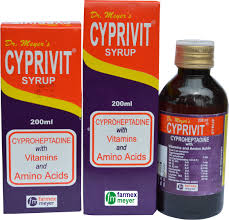Please Note!
ALL ORDERS WE RECEIVE ON OR BEFORE 6:00PM (LOCAL TIME) WILL BE PROCESSED AND DISPATCHED TO YOU THE SAME DAY.
Super seas codliver oil 300mg
₦250.00
Cod liver oil is used as a source of vitamin A and vitamin D. It is also used as a source of fat called omega-3 for heart health, depression, arthritis, and other conditions, but there is no good scientific evidence of any use.
Available on backorder
Description
Overview Information
Cod liver oil can be obtained from eating fresh cod liver or by taking supplements.
Cod liver oil is used as a source of vitamin A and vitamin D. It is also used as a source of fat called omega-3 for heart health, depression, arthritis, and other conditions, but there is no good scientific evidence of any use.
How does it work?
Cod liver oil contains certain “fatty acids” that prevent the blood from clotting easily. These fatty acids also reduce pain and swelling.
Likely Effective for
- Lowering blood fats called triglycerides. Taking cod liver oil by mouth can reduce triglyceride levels by 20% to 50% in people with high triglyceride levels.
Possibly Effective for
- High blood pressure. Taking cod liver oil by mouth seems to lower blood pressure (both numbers) a small, but important, amount in people with mild high blood pressure.
- Kidney disease in people with type 2 diabetes. Taking cod liver oil seems to reduce protein in the urine, a marker for kidney disease severity.
Possibly Ineffective for
- Osteoarthritis.
- Cholesterol disease that runs in families (familial hypercholesterolemia).
Insufficient Evidence for
- An eye disease that leads to vision loss in older adults (age-related macular degeneration or AMD). People who eat a lot of fish and take cod liver oil don’t have a lower risk of developing this condition compared to people who just eat a lot of fish.
- Hay fever. Taking cod liver oil during pregnancy or while breastfeeding, or giving cod liver oil to the infant up to 2 years of age, does not seem to prevent hay fever.
- Irregular heartbeat (arrhythmia). Taking cod liver oil by mouth might reduce a specific type of irregular heartbeat in some people. But it’s not known if this reduces the risk of heart-related death. Taking cod liver oil by mouth does not seem to reduce irregular heartbeat in men with an irregular heartbeat after a heart attack.
- Asthma. Most research shows that taking cod liver oil during pregnancy or breast-feeding, or giving cod liver oil to an infant up to 2 years of age, doesn’t prevent asthma. But taking cod liver oil 1-3 times weekly during pregnancy might reduce the risk of asthma in the child at 6 years of age.
- Eczema (atopic dermatitis). Most research shows that taking cod liver oil during pregnancy or breast-feeding, or giving cod liver oil to an infant up to 2 years of age, doesn’t prevent eczema. But fewer infants have eczema at one year of age if they take cod liver oil at least four times weekly.
- Depression. Taking cod liver oil has been linked with a 29% lower chance of older adults having depression symptoms.
- Diabetes. Taking cod liver oil may help control blood sugar in people with diabetes during pregnancy. This might help to prevent complications at birth. It may take up to 12 weeks for benefit. Taking cod liver oil doesn’t seem to help with blood sugar control in people with type 1 diabetes.
- An inherited tendency towards high cholesterol (familial hypercholesterolemia). Early research shows that taking cod liver oil doesn’t seem to lower cholesterol levels in people with familial hypercholesterolemia.
- High cholesterol. Taking cod liver oil by mouth doesn’t lower cholesterol levels in people with high cholesterol. But it might increase “good” high-density lipoprotein cholesterol levels in people with type 1 diabetes and high cholesterol. Also, it might lower blood fats called “triglycerides” in men who have had a heart attack.
- High blood pressure. Taking cod liver oil by mouth seems to slightly lower blood pressure in healthy people and those with slightly high blood pressure. But it’s not clear if this reduction is clinically meaningful for people with very high cholesterol.
- Long-term swelling (inflammation) in the digestive tract (inflammatory bowel disease or IBD). Some people with inflammatory bowel disease have joint pain. Taking cod liver oil might reduce joint pain in some people with this condition.
- Osteoarthritis. Taking cod liver oil along with an NSAID doesn’t reduce swelling in people with osteoarthritis better than taking an NSAID alone.
- Ear infection (otitis media). Taking cod liver oil and a multivitamin might reduce the need to use medicine to treat ear infections in young children by about 12%.
- Infection of the airways. Giving young children cod liver oil and a multivitamin seems to reduce the number of doctor’s office visits for airway infections.
- Rheumatoid arthritis (RA). Taking cod liver oil might decrease pain, morning stiffness, and swelling in some patients with rheumatoid arthritis. Also, taking cod liver oil and fish oil seems to reduce the need to use medicine to treat joint swelling in people with this condition.
- Vitamin D deficiency. Taking cod liver oil seems to increase blood levels of vitamin D in some people. But it’s not clear if cod liver oil increases vitamin D to normal levels in people with low levels of vitamin D.
- Wound healing.
Be the first to review “Super seas codliver oil 300mg” Cancel reply
Related products
₦1,700.00 – ₦2,700.00
₦500.00 – ₦700.00







Reviews
There are no reviews yet.